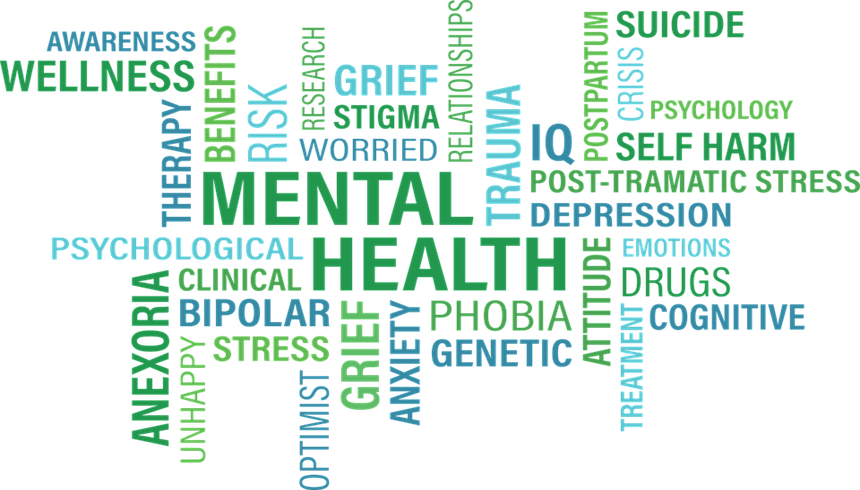Is committing suicide a crime?
Suicide is man’s way of telling God, ‘You can’t fire me, I quit’ – Bill Maher
Many of us have experienced a momentary weakness of mental strength. At times, driving us to give up on our lives. The dark cloud of sorrow comes crashing into one’s life when you least expect it. Such circumstances make us feel despondent enough to disregard the beautiful gift – LIFE. Incidentally, life in legal parlance is a fundamental right of all people guaranteed under Article 21 of the Indian Constitution. While, everyone can choose how to live one’s life, unremitting debates have been held on whether Article 21 also allows taking of one’s own life.
I can tell you that I see a large number of patients with depression, and they come from all walks of life, from all cultural / social / economic / ethnic background. The family background is varied too. – Dr. Aniruddha Deb, leading Psychiatrist from Kolkata
Incidentally, someone I knew committed suicide recently. Many blamed him for his cowardice; others held his bad habits accountable. Yes, he was an alcoholic, but is it right to blame a dead person’s character after he is no more? Even if he had survived the suicide attempt, is it right to punish him for trying to take his own life, one that I am sure was more precious to him than to anyone else? I leave that for you to answer.
Landmark case laws on Right to Die:
The Constitutional Bench in Kharak Singh v. The State of U.P., held that life means more than ‘mere animal existence.’ In fact division bench of the Supreme Court had held in 1986 in State of Himachal Pradesh v Umed Ram that ‘right to life embraces not just physical existence but also quality of life.’
In effect, in 1994, the Supreme Court in P.Rathinam v. Union of India, decriminalised the attempt to commit suicide. It reasoned that an act is treated as crime and punished only when it results in adverse sociological effects. The division bench observed that, ‘It is a cruel and irrational provision, and it may result in punishing a person again (doubly) who has suffered agony and would be undergoing ignominy because of his failure to commit suicide.’ Therefore, Section 309 of IPC violates Article 21 of the Indian Constitution.
However, in 1996, a constitutional bench of the Supreme Court in Smt Gian Kaur v. State of Punjab, criminalised the attempt to commit suicide. It observed that right to life is a natural right embodied in Article 21. However, suicide is an unnatural termination of life, which is inherently inconsistent with right to life. Therefore, Section 309 does not violate Article 21.
Mental Health Bill, 2013:
After all these years, Rajya Sabha passed the Mental Health Bill, 2013 on August 8th, 2016. Section 124 of this Bill seeks to decriminalise suicide and attempt to suicide. The section is worded as follows:
- (1) Notwithstanding anything contained in section 309 of the Indian Penal Code, any person who attempts to commit suicide shall be presumed, unless proved otherwise, to be suffering from mental illness at the.
(2) The appropriate Government shall have a duty to provide care, treatment and rehabilitation to a person, having mental illness and who attempted to commit suicide, to reduce the risk of recurrence of attempt to commit suicide.
Everyone who attempts suicide needs be examined by a psychiatrist to rule out mental illness. There is a theory that if someone, for whatever reason, decides to end his/her own life, one has lost the perspective and needs psychiatric/psychological help. Also, without rehabilitation, there can be no true freedom from mental illness. – Dr. Aniruddha Deb
Laws on Mental Health and their drawbacks:
This bill seeks to replace Mental Health Act, 1987. The other mental health law was Indian Lunacy Act, 1912.
On one hand, Indian Lunacy Act mainly dealt with protecting the society from persons with metal illness. The Act’s emphasis was on custodial care believing that people with mental illness would spend the rest of their lives in such custodial care institutions. Therefore, the Act mainly dealt with their admission into such institutions, the management of their property etc.
Mental Health Act, on the other hand was passed to focus on provisions for treatment and discharge of persons with mental illness admitted in hospitals. However, the Act largely dealt with administration and regulation of mental health care institutions rather than addressing and protecting persons with mental illness. Therefore, the Act was widely criticised.
Hence, both the Acts failed to pay attention to main issue of mental illness and how to protect such people. Moreover, despite these laws in place, the quality of treatment at such institutions are deplorable. The video below shows a shocking account of India’s mental health crisis:
What Mental Health Bill, 2013 aims to cover:
Now, Mental Health Bill, 2013 among other things aims to provide better treatment, healthcare and rehabilitation of persons with mental illness. It aims to fill the gap in the mental health infrastructure of the country. Roughly 3-4 percent of the population in India suffer with mental illness with about 1% having acute problems. Moreover, a study made by the WHO survey stated 35.9% of the population in India suffer with Major Depressive Episodes.
Therefore, our ministers including A.K.Selvaraj of AIADMK and Vishwambar Prasad Nishad of SP raised concern towards the shortage of psychiatrists in India. We have only 1 psychiatrist for every 4 lakh population. The Bill addressed this issue by making the appropriate government responsible of the human resource requirement in the mental health services.
Conclusion:
In an emphatic move, persons suffering with mental illness are finally treated with dignity. They are not to be treated in restrictive mental health establishments for all their life, but will have access to family or home based rehabilitation services. Section 19 also provides for halfway homes or group homes for those who do not have a family or are not accepted by their family. Such homes are community based establishments.
Hence, we finally have an Act that aims at treatment and protection of persons with mental illness in a dignified manner. It also rightly decriminalises attempt to suicide by having an over-riding effect over Section 309 of IPC.
The new bill is not the last word in mental health care. It has huge pitfalls and gaps. It has tried to do things that are physically impossible to do in our country. However, overall it is much better than the current Mental Health Act which was a hotchpotch with larger loopholes. It has to be refined, modified and improved upon, like all law, it will change with demands of society and development that time will bring in – Dr. Aniruddha Deb
Implementation of this law is the essence of how we tackle the problem of mental illness in India. Our attitude towards persons suffering with mental illness needs to change. The treatment needs to be just the same as for persons with physical ailments.
The taboo associated with mental illness has been a deterrent for years now and unless we get rid of it, Indian citizens are going to continue to suffer with depression within closed doors leading to an increase in the suicide rates.
Picture Courtesy: Pixabay








There Are 2 Comments